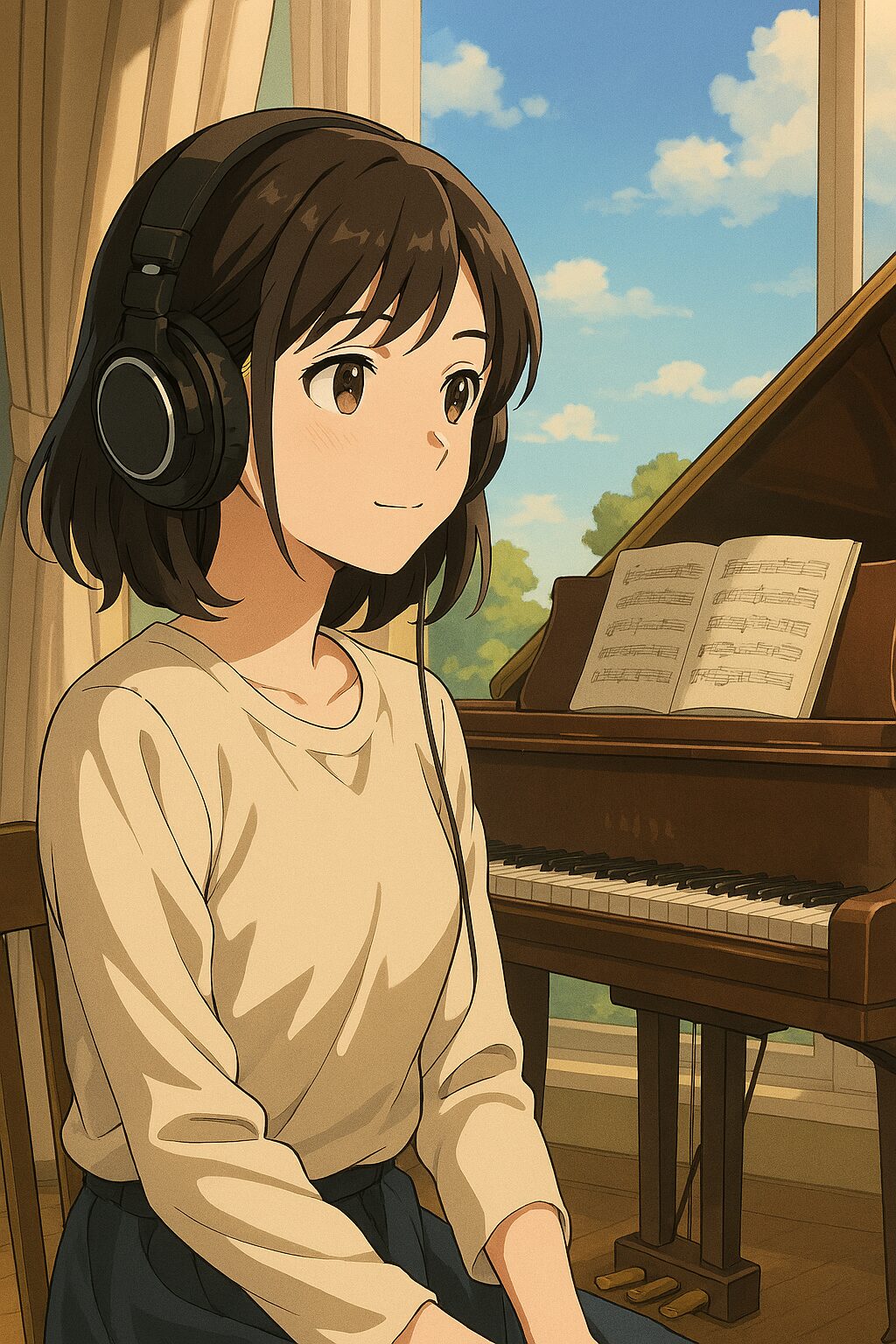- Introduction: Why September 4 Is Classical Music Day in Japan
- What Is Classical Music? Clearing Up Misconceptions
- Japan’s Relationship with Classical Music
- The Power of Classical Music: Healing and Focus
- Experiencing Classical Music in Kyoto and Nara
- A Message to International Readers: Music as a Cultural Translator
- Conclusion: The Quiet Emotion That Music Offers
- はじめに:なぜ「クラシック音楽の日」なのか?
- クラシック音楽とは?その定義と誤解
- 日本とクラシック音楽の関係
- クラシック音楽の魅力:心を整える音の力
- 京都・関西で楽しむクラシック音楽
- 海外読者へのメッセージ:クラシック音楽は「文化の翻訳者」
- おわりに:音楽がくれる「静かな感動」
Introduction: Why September 4 Is Classical Music Day in Japan
In Japan, September 4 is known as “Classical Music Day.” The origin is a playful pun: “Ku (9) Ra Shi (4) cku” sounds like “classic” in Japanese. But beyond the wordplay lies a deeper intention—to reflect on the timeless beauty, emotional power, and cultural significance of classical music.
This article offers an accessible introduction to classical music through the lens of Japanese culture. Based in Kizugawa City, Kyoto Prefecture, the author explores how classical music resonates in everyday life and connects people across borders.
What Is Classical Music? Clearing Up Misconceptions
Many people associate classical music with formality, complexity, or elitism. But in reality, classical music quietly permeates our daily lives:
- The hit Japanese drama Nodame Cantabile uses classical music to portray youthful passion and growth.
- Studio Ghibli films often feature pieces by Ravel and Debussy to evoke dreamlike atmospheres.
- Commercials and video games subtly incorporate melodies by Bach and Mozart.
Classical music refers to the artistic traditions developed in Europe from the 17th to 19th centuries. It is a form of intellectual and emotional expression, where composers embed philosophy and feeling into sound.
Japan’s Relationship with Classical Music
Classical music entered Japan during the Meiji era (late 19th century), alongside broader Western cultural influences. Music education became institutionalized, and singing and instrument playing were introduced in schools.
Notable Japanese Classical Musicians
- Seiji Ozawa: A world-renowned conductor who led the Vienna Philharmonic and Boston Symphony Orchestra.
- Nobuyuki Tsujii: A blind pianist who won international competitions and moved audiences worldwide.
- Kyohei Sorita: Achieved remarkable success at the Chopin International Piano Competition.
You can find their performances on platforms like YouTube and Spotify.
👉 Try searching “Nobuyuki Tsujii” to discover official and fan-uploaded performances.
The Power of Classical Music: Healing and Focus
| Benefit | Description |
|---|---|
| Improved Focus | Structured rhythms by Bach or Vivaldi stimulate brain activity. |
| Stress Relief | Gentle tones from Debussy or Ravel soothe the nervous system. |
| Better Sleep | Nocturnes by Chopin activate the parasympathetic nervous system. |
Classical music is even used in medical and educational settings.
👉 Classical Music and Brain Science (NHK Health Channel)
Experiencing Classical Music in Kyoto and Nara
- Kyoto Concert Hall: Hosts regular performances by world-class musicians.
- Nara Prefectural Cultural Hall: Features local orchestras and choirs.
- Cafés and galleries: Offer intimate live performances blending classical music with contemporary art.
These events are open to tourists and locals alike, offering a chance to experience both Japanese culture and classical music in one setting.
A Message to International Readers: Music as a Cultural Translator
Classical music transcends language barriers and conveys emotion across cultures. Even foreigners living in Japan can sense the country’s aesthetic values and seasonal moods through music.
For example, Japan’s concept of wabi-sabi—the beauty of imperfection and transience—can be felt in Bach’s solo cello suites or the quiet compositions of Toru Takemitsu.
👉 Explore Toru Takemitsu’s World (Boosey & Hawkes)
Conclusion: The Quiet Emotion That Music Offers
Classical Music Day is more than a commemorative date. It’s a gentle invitation to pause and listen—to rediscover the emotional depth that music can offer.
Music wraps around feelings that words cannot express. Classical music is a quiet bridge between past and present, between cultures and hearts.
🎼 クラシック音楽の日:9月4日に音楽の深みを再発見する
はじめに:なぜ「クラシック音楽の日」なのか?
9月4日――日本ではこの日を「クラシック音楽の日」と呼びます。由来は「ク(9)ラシ(4)ック」という語呂合わせから。一見ユーモラスな語源ですが、実はこの記念日には深い意味があります。クラシック音楽が持つ「時代を超えた美しさ」「感情を揺さぶる力」「文化をつなぐ橋渡し」といった価値を、改めて見つめ直すきっかけとして制定されたのです。
クラシック音楽とは?その定義と誤解
「クラシック音楽」と聞くと、多くの人が「堅苦しい」「難しい」「高尚すぎる」といった印象を抱くかもしれません。しかし実際には、クラシック音楽は私たちの生活の中に静かに溶け込んでいます。
- 映画『のだめカンタービレ』では、クラシック音楽が若者の情熱と成長を描く鍵となっています。
- スタジオジブリ作品では、ラヴェルやドビュッシーの楽曲が幻想的な世界観を支えています。
- CMやゲーム音楽にも、バッハやモーツァルトの旋律がさりげなく使われています。
クラシック音楽とは、17世紀から19世紀にかけてヨーロッパで発展した芸術音楽の総称であり、作曲家の思想や哲学が音に込められた「知的で感情的な表現手段」なのです。
日本とクラシック音楽の関係
日本にクラシック音楽が本格的に導入されたのは、明治時代以降。西洋文化の受容とともに、音楽教育が制度化され、学校での合唱や楽器演奏が一般化しました。
注目すべき日本人音楽家
- 小澤征爾:世界的指揮者として、ウィーン・フィルやボストン交響楽団などで活躍。
- 辻井伸行:視覚障害を持ちながらも、国際ピアノコンクールで優勝し、世界中の聴衆を魅了。
- 反田恭平:ショパン国際ピアノコンクールで日本人として快挙を達成。
彼らの演奏は、YouTubeやSpotifyなどで世界中から視聴可能です。
👉 辻井伸行さんの演奏は「Nobuyuki Tsujii」で検索すると、公式やファンチャンネルで視聴できます。
クラシック音楽の魅力:心を整える音の力
| 効果 | 説明 |
|---|---|
| 集中力向上 | バッハやヴィヴァルディの規則的なリズムが脳を活性化 |
| ストレス緩和 | ドビュッシーやラヴェルの柔らかな音色が心を癒す |
| 睡眠の質向上 | ショパンのノクターンなどが副交感神経を刺激 |
実際に、医療現場や教育現場でもクラシック音楽が活用されている例があります。
👉 クラシック音楽と脳科学の関係(NHK健康チャンネル)
京都・関西で楽しむクラシック音楽
- 京都コンサートホール:世界的演奏家の来日公演が定期的に開催
- 奈良県文化会館:地域のオーケストラや合唱団による演奏会
- カフェやギャラリーでのミニライブ:クラシック×現代アートの融合
こうした地域イベントは、観光客にも開かれており、日本文化と音楽の両方を体験できる貴重な場となっています。
海外読者へのメッセージ:クラシック音楽は「文化の翻訳者」
クラシック音楽は、言語の壁を越えて感情を伝える「文化の翻訳者」です。日本に住む外国人の方々も、クラシック音楽を通じて日本の美意識や季節感を感じることができます。
たとえば、日本の「侘び寂び」の感覚は、バッハの無伴奏チェロ組曲や武満徹の静謐な音楽に通じるものがあります。
👉 武満徹の世界(Boosey & Hawkes)
おわりに:音楽がくれる「静かな感動」
クラシック音楽の日は、ただの記念日ではありません。それは、忙しい日常の中で「耳を澄ませる時間」を持つための、小さなきっかけです。
音楽は、言葉にならない感情をそっと包み込み、心の奥に響きます。クラシック音楽は、過去と現在、そして異なる文化をつなぐ「静かな橋」なのです。



コメント